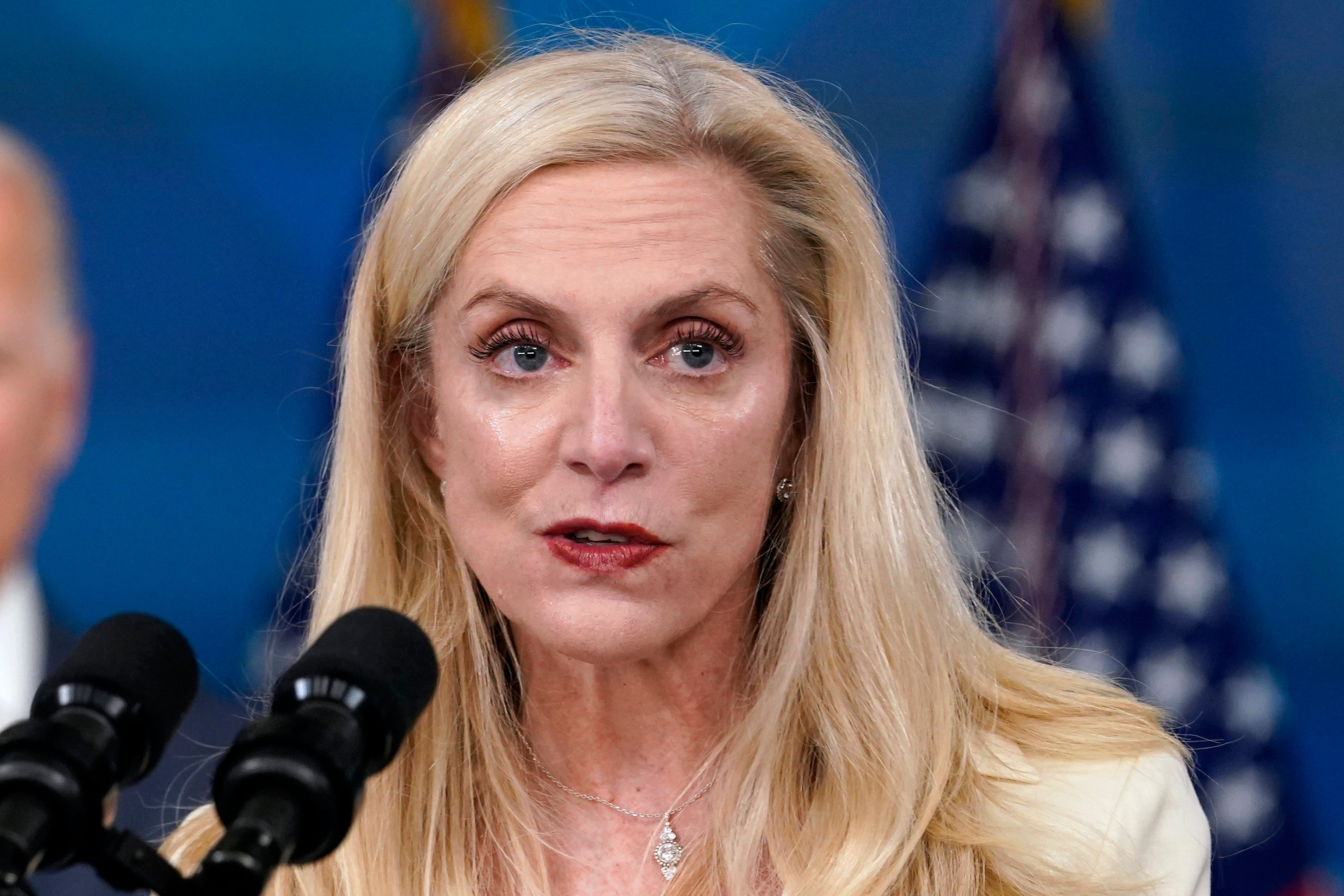AP source: Biden to name Brainard to head Economic Council
President Joe Biden plans to name Federal Reserve Vice Chair Lael Brainard as the new director of his National Economic Council

Your support helps us to tell the story
From reproductive rights to climate change to Big Tech, The Independent is on the ground when the story is developing. Whether it's investigating the financials of Elon Musk's pro-Trump PAC or producing our latest documentary, 'The A Word', which shines a light on the American women fighting for reproductive rights, we know how important it is to parse out the facts from the messaging.
At such a critical moment in US history, we need reporters on the ground. Your donation allows us to keep sending journalists to speak to both sides of the story.
The Independent is trusted by Americans across the entire political spectrum. And unlike many other quality news outlets, we choose not to lock Americans out of our reporting and analysis with paywalls. We believe quality journalism should be available to everyone, paid for by those who can afford it.
Your support makes all the difference.President Joe Biden plans on Tuesday to name Federal Reserve Vice Chair Lael Brainard as the new director of his National Economic Council, making the Ph.D. economist a key point person for coordinating policy, talking with business leaders and negotiating with Congress.
Biden also plans to nominate longtime adviser Jared Bernstein to be chair of the White House Council of Economic Advisers, according to a government official familiar with the plans, who spoke on condition of anonymity because there has been no public announcement.
Brainard and Bernstein would be moving into top spots at a crucial juncture for the U.S. economy. Unemployment is at 3.4%, near a 54-year low, but inflation remains persistently high at 6.4% and has contributed to fears of a coming recession.
Brainard would be succeeding Brian Deese, who helped handle several key legislative wins for Biden, including coronavirus relief, infrastructure spending and investments in computer chip production.
Brainard, 61, holds a doctoral degree in economics from Harvard University. During the Clinton administration, she worked as a deputy director for the National Economic Council. She was also under secretary for international affairs at Treasury during Barack Obama's presidency. Brainard joined the Fed in 2014 as a governor and Biden nominated her to become vice chair.
She also forms half of an administration power couple, with her husband, Kurt Campbell, serving on the National Security Council as the administration's “Asian czar.”
Bernstein is already a member of the Council of Economic Advisers, where he would succeed current chair Cecilia Rouse, who is returning to Princeton University. With an interest in labor markets and income inequality, Bernstein worked as a vice presidential aide for Biden during Obama's presidency.
Brainard’s departure from the Fed comes at a fraught time, as the central bank seeks to balance its f ight against inflation without going so far as to cause a worse recession than necessary. Brainard has been a leading “dovish” voice, meaning she typically supports lower interest rates to bolster employment. (“Hawks” are more likely to push for higher rates to combat inflation).
In a speech last month, Brainard argued that taming inflation might not require the job market “pain,” in the form of widespread layoffs, that other Fed officials, including Fed Chair Jerome Powell, have warned about. Instead, she said that companies may be forced to reduce prices and cut their profit margins as consumer demand slows, which would help bring down inflation.
However, President Biden has appointed three other members of the Fed’s governing board, so Brainard’s departure will not deprive the central bank of dovish voices.
Brainard has also supported tougher financial regulations than Powell. When Randal Quarles was the Fed’s top financial regulator -- appointed by President Donald Trump -- Brainard cast about 20 dissenting votes on regulatory issues.
She has also expressed support for the idea that the Fed could do more to push banks to consider the risks posed by climate change to their financial health. Climate activists warn that increased damage to homes, commercial buildings, and other property will impose greater financial losses on banks and should be considered when evaluating their safety and soundness.
Fed watchers say it is unlikely that Brainard would be replaced by other current members of the Fed’s board. Under Powell, who is not a trained economist, the Fed vice chair has been someone with a deep background in monetary economics, such as Richard Clarida, Brainard’s predecessor. Clarida was an economics professor at Columbia University and an adviser to PIMCO, a bond trading firm.